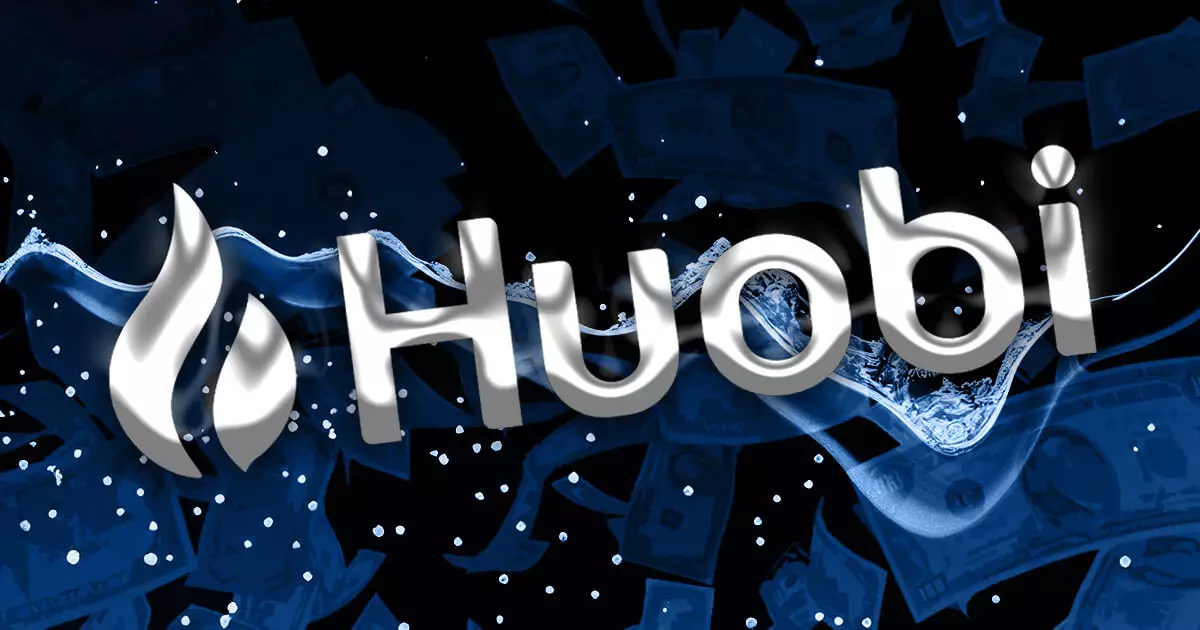Over the weekend, the crypto exchange Huobi found itself under scrutiny due to claims about its financial health and the alleged legal entanglements of its executives. Although Huobi has been experiencing a decline in its total locked-up value (TVL), dropping from $3 billion to $2.4 billion in July, rumors began circulating that several Huobi exchange executives had been taken into custody by Chinese authorities. However, these claims were quickly shut down by Justin Sun, a global advisor to the company, who took to social media to dismiss them. Despite Sun’s assurances, the market sentiment remained skeptical as the outflow of funds continued.
A deeper analysis of Huobi’s situation indicates that it may not be an isolated case. According to data from Glassnode, USDT reserves on various chains across several top exchanges, including Huobi, have been depleting at a similar rate. This suggests that the concerns surrounding Huobi might be part of a broader market trend rather than an issue specific to the exchange. Interestingly, Binance stands out as an exception in this scenario, as it has recorded an increase in USDT reserves according to Glassnode. This divergence highlights that Binance’s role and strategies in the current market environment significantly differ from those of other exchanges.
Concerns Raised by Adam Cochran
Adam Cochran, a partner at Cinneamhain Ventures, has raised concerns about Huobi’s financial health. In a post thread on X on August 5, Cochran alleges that Huobi has control over a significant portion of USDT and USDC tokens within its platform. He claims that Tron’s blockchain data suggests that 98% of the token is held directly by Sun or Huobi. Cochran further asserts that when users stake their USDT into stUSDT, it gets swept into a Huobi deposit address, indicating a lack of transparency. He alleges that Huobi only holds $90 million in assets across USDT and USDC, significantly less than the $630 million reported in Huobi’s ‘Merkle Tree Audit.’ Glassnode data confirms that Huobi holds $58 million in USDT as of press time. These revelations have sparked controversy and speculation.
In addition to the alleged USDT discrepancy, Cochran also suggests a parallel situation involving Ethereum (ETH). According to Cochran, users’ ETH holdings have been converted into stETH without their knowledge or consent. He claims that all the user ETH is missing, with Sun turning it into stETH. Users believe they hold 141,000 ETH on Huobi, but Cochran asserts that Sun holds about half that total balance, and it’s all in stETH.
Amidst this conflicting information, a Huobi community manager, @33Huobi, responded on August 6, stating that neither Huobi nor Tron were under investigation by the police and that all operations were normal. However, Cochran remained steadfast in his allegations, citing a senior executive from the Tron team as his source. On August 7, Cochran reported that Huobi’s total balance stood at $2.5 billion, further fueling insolvency rumors by claiming that even the total liquid assets were less than one-third of the reported USDT obligations. While the truth behind Cochran’s allegations requires additional information and confirmation, this situation underscores the significance of transparency and accountability within the crypto industry.
Despite the concerns and controversies surrounding its financial health, Huobi continues to reassure its users and the broader community of its operational stability. According to Xie Jiayin, Huobi PR, the platform’s operations are running as usual, and the community is urged to refrain from spreading or believing in rumors. The spokesperson for Huobi also emphasized the importance of investigating the source of information to avoid unnecessary fear, uncertainty, and doubt (FUD).
The controversies surrounding Huobi’s financial health have sparked intense speculation and debate within the crypto market. While certain allegations and concerns have been raised by industry insiders like Adam Cochran, it is crucial to gather more information and confirm the veracity of these claims. Transparency and accountability remain vital in ensuring trust and stability within the crypto industry as it continues to evolve and face new challenges.


Leave a Reply